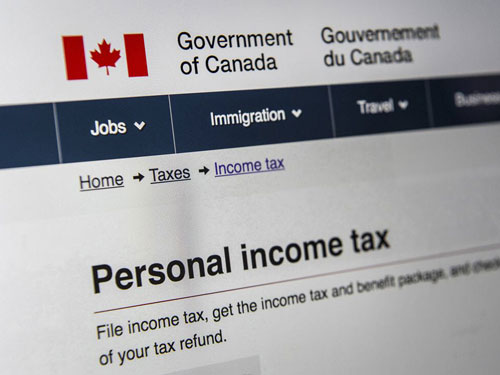 Nevcon is getting lots of questions about the proposed GST/HST holiday. If approved, it will give Canadian consumers some temporary tax relief on a range of goods and services going into the holidays. Here is some information from Canada Revenue Agency (CRA) and other sources to help you prepare.
Nevcon is getting lots of questions about the proposed GST/HST holiday. If approved, it will give Canadian consumers some temporary tax relief on a range of goods and services going into the holidays. Here is some information from Canada Revenue Agency (CRA) and other sources to help you prepare.
From December 14, 2024, to February 15, 2025, certain goods and services will be exempt from the Goods and Services Tax (GST) and Harmonized Sales Tax (HST). However, as of now, the Canada Revenue Agency (CRA) has not released specific regulations or detailed guidelines about this temporary tax break.
Here’s what we know so far, along with what to expect from the CRA.
The Tax Relief Initiative at a Glance
The federal government’s tax holiday aims to ease the financial burden on Canadians by eliminating GST and HST on specific categories of goods and services. This initiative, announced on November 21, 2024, includes a wide range of items such as:
- Prepared Foods and Beverages: Restaurant meals, snacks, and certain low-alcohol beverages.
- Children’s Products: Clothing, footwear, diapers, and car seats.
- Toys and Entertainment: Board games, video game consoles, and physical game media.
- Reading Materials: Printed books and newspapers.
- Seasonal Items: Christmas trees and similar goods.
With this exemption, families could see significant savings during the holiday shopping season. For example, a family spending $2,000 on qualifying goods could save approximately $100 in GST—and potentially much more in HST provinces like Ontario.
What’s Missing? CRA Guidelines
While the initiative has been well-received, businesses and consumers alike are awaiting detailed regulations from the CRA. These guidelines are expected to clarify:
- Eligible Goods and Services: A precise list of qualifying items.
- Implementation for Businesses: Instructions on how businesses should handle the tax exemption at the point of sale.
- Reporting Requirements: Details on how businesses should report these transactions to the CRA.
- Enforcement and Compliance: Steps to ensure businesses and consumers adhere to the rules.
The CRA’s guidance will be crucial for businesses to prepare their systems and processes, ensuring they can apply the exemption seamlessly and avoid potential compliance issues.
What Businesses and Consumers Can Do Now
While waiting for the CRA’s official regulations, here are some proactive steps you can take:
For Businesses:
- Monitor CRA Announcements: Regularly check the CRA’s official website and subscribe to updates.
- Prepare Your Systems: Consult with your accounting or point-of-sale (POS) providers to ensure your systems can handle temporary tax adjustments.
- Educate Your Team: Train your staff to identify eligible items and correctly apply the exemption once the guidelines are released.
For Consumers:
- Know the Dates: The tax exemption period runs from December 14, 2024, to February 15, 2025—plan your purchases accordingly.
- Check with Retailers: Confirm whether specific items are GST/HST-free at checkout during the exemption period.
- Stay Informed: Follow reputable news outlets or visit the CRA’s website for updates.
Looking Ahead
The CRA is expected to release detailed regulations in the coming weeks. These will play a pivotal role in ensuring the success of this initiative. Whether you’re a business owner preparing for the busiest shopping season or a consumer looking to maximize your savings, staying informed is key.
Keep an eye out for CRA updates and make sure you’re ready to take full advantage of this holiday tax break. In the meantime, plan your shopping list and get ready to save!
Here is a descriptive list from the Government of Canada of the items that will qualify for the HST relief.
More money in your pocket: A tax break for all Canadians
From: Department of Finance Canada
Have questions about the GST/HST holiday? Let us know in the comments, and we’ll help you navigate this new initiative.


 Nevcon is getting lots of questions about the proposed GST/HST holiday. If approved, it will give Canadian consumers some temporary tax relief on a range of goods and services going into the holidays. Here is some information from Canada Revenue Agency (CRA) and other sources to help you prepare.
Nevcon is getting lots of questions about the proposed GST/HST holiday. If approved, it will give Canadian consumers some temporary tax relief on a range of goods and services going into the holidays. Here is some information from Canada Revenue Agency (CRA) and other sources to help you prepare. “While it is tax season, the government said for individuals, the return filing due date will be deferred until June 1, 2020. The Canada Revenue Agency will also allow all taxpayers to defer, until after August 31, 2020, the payment of any income tax amounts that become owing on or after today and before September 2020.”
“While it is tax season, the government said for individuals, the return filing due date will be deferred until June 1, 2020. The Canada Revenue Agency will also allow all taxpayers to defer, until after August 31, 2020, the payment of any income tax amounts that become owing on or after today and before September 2020.”